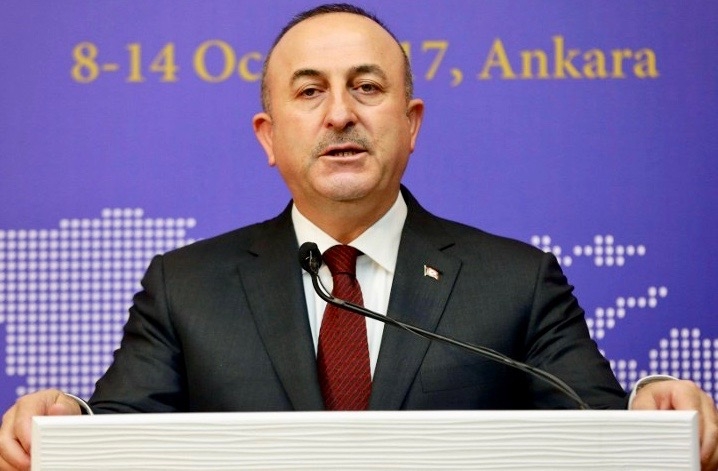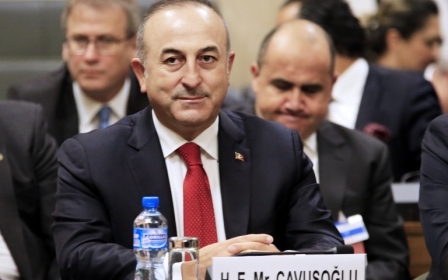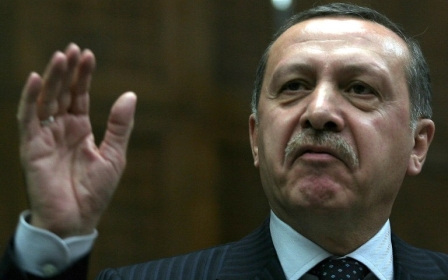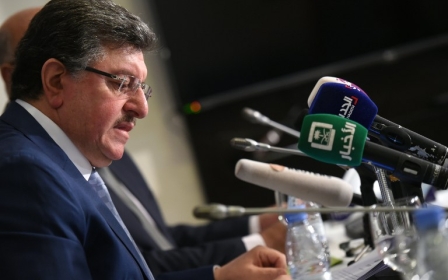Turkey says if US wants Kurds at peace talks, might as well invite IS

If the United States wants to invite Kurds to the forthcoming Syrian peace talks, it might as well invite the Islamic State (IS) group, said the foreign minister of Turkey, whose country views Kurdish fighters in Syria as extremists.
The Kurdish Democratic Union Party (PYD) and its armed wing, the Kurdish Peoples' Protection Units (YPG), have been Western allies in the Syrian conflict but are condemned by Turkey, which will co-host the peace talks in Kazakhstan with Russia set for 23 January.
Turkey calls the PYD a "terror group" for its links to Kurdish separatist militants in Turkey and has blasted the US repeatedly for working with the group on the ground in Syria.
A comment by a US State Department spokesman this week that Washington believes the PYD will "have to be a part of this process... at some point" infuriated Ankara.
"If you are going to invite a terror group to the table then you might as well invite al-Nusra and Daesh," Turkish Foreign Minister Mevlut Cavusoglu told reporters, referring to the former al-Qaeda affiliate Fateh al-Sham Front, known previously as al-Nusra Front, and IS.
"We do not deny the US role and contribution [to the talks], but we expect the following from the new US administration: it must stop co-operating with terror groups," he said.
"The current [US] administration is making serious mistakes," he said.
It was not the first diplomatic spat over the heated Kurdish issue this week.
A US Central Command tweet insisting its Kurdish allies were not linked to outlawed militants whipped up a storm on Thursday, with Ankara asking if Washington had "lost its senses".
Relations between the US and Turkey have become increasingly bitter in the last month, with Ankara expressing hope of a "new chapter" under President-elect Donald Trump.
While Washington has played a key role in attempts to bring Syria's warring parties to the negotiating table in the past, it has been notably absent from the cooperation between Ankara and Moscow to broker a nationwide ceasefire that is meant to pave the way for the 23 January peace talks.
Despite backing opposite sides in the Syrian conflict, Russia and Turkey are keen for a deal to end the conflict and both sides appear to think Trump's administration could help.
The Astana talks are scheduled to begin just three days after Trump is inaugurated.
Donald Trump's transition team said on Saturday it had been invited to the Russia-backed talks. "We have been asked to attend," Trump spokesman Sean Spicer told AFP, suggesting no RSVP has been given.
A representative for the Syrian Kurds said that they had not been invited to take part.
Opposition backs talks
The Syrian political opposition said on Saturday that it supports planned peace talks in the Kazakh capital.
"Concerning the forthcoming meeting in Astana, the [High Negotiations] Committee stresses its support to the military delegation ... and expresses hope that the meeting would reinforce the truce," an HNC statement said after a two-day meeting in Riyadh.
The HNC also expressed hope that the meeting would "establish a phase of confidence" through the implementation of UN Security Council Resolution 2254, especially articles concerning ending sieges of cities and towns, delivering aid and releasing detainees.
The HNC said it "appreciates efforts" to make the Astana talks fruitful, adding that the meeting represents a step that "paves the way for political talks" in Geneva next month.
The statement, which did not clarify whether the HNC has been invited to the Astana talks, stressed that "discussing the political track ... should be held under the UN sponsorship and supervision".
The HNC is the main Syrian opposition umbrella group and participated in previous peace talks in Geneva.
The ceasefire and planned talks are the latest effort to negotiate an end to a conflict that has killed more than 310,000 people since it began with anti-government protests in March 2011.
New MEE newsletter: Jerusalem Dispatch
Sign up to get the latest insights and analysis on Israel-Palestine, alongside Turkey Unpacked and other MEE newsletters
Middle East Eye delivers independent and unrivalled coverage and analysis of the Middle East, North Africa and beyond. To learn more about republishing this content and the associated fees, please fill out this form. More about MEE can be found here.




